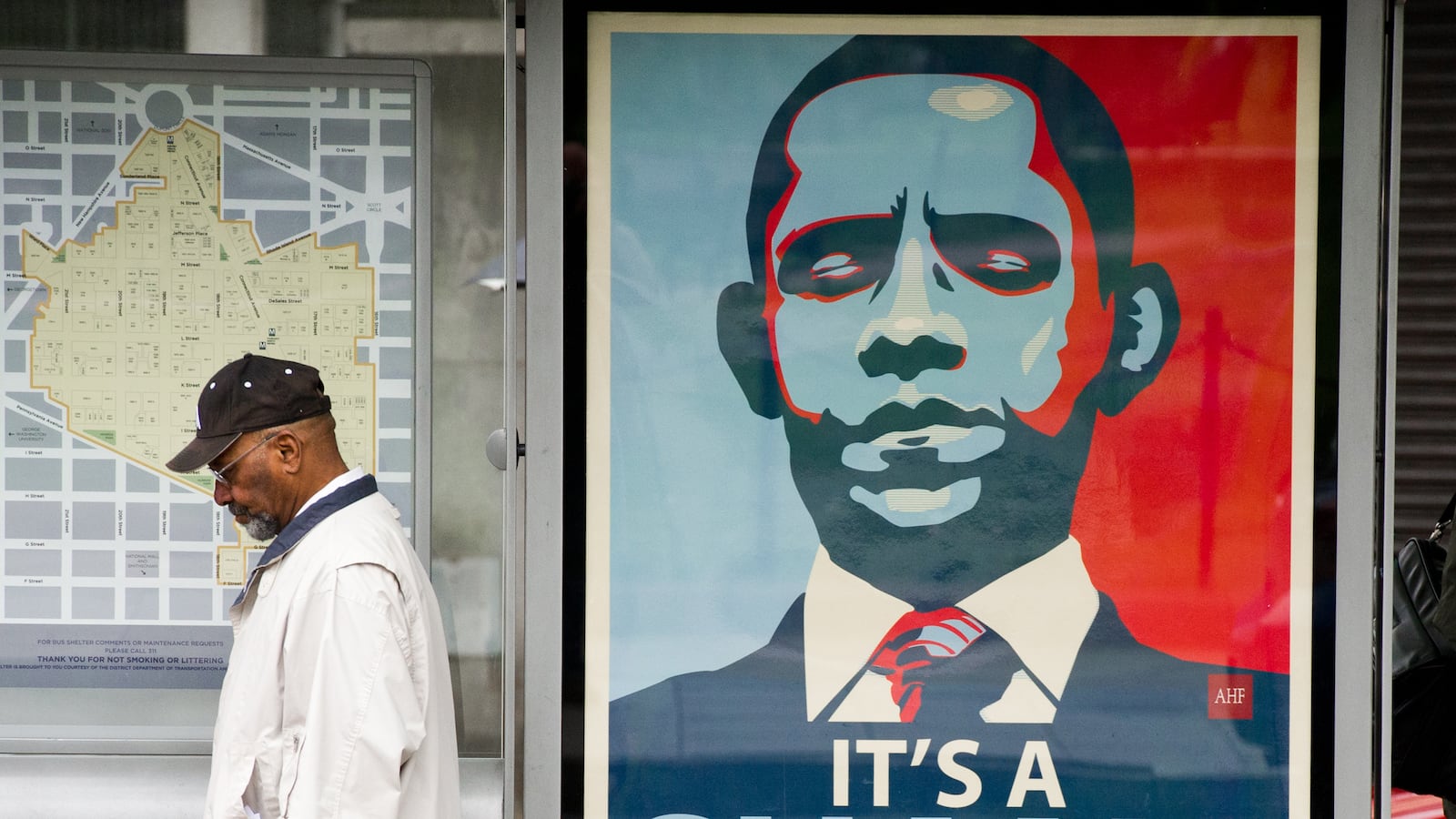November has not been kind to the Obama administration. Piece after piece of the Affordable Care Act has very publicly fallen apart or failed to function as promised, and voters have punished President Obama in the polls accordingly. Between the embarrassing failure of HealthCare.gov’s rollout and the broken promise of “if you like your plan, you can keep it,” headline after headline has spelled bad news for the president and his team.

When pundits and politicos assess the health of a presidency, the most obvious and oft-noted metric is job approval. Do Americans approve of the job the president is doing? The question is broad; it does not specify a particular issue or attribute, assessing very generally how well voters think a president has governed. The latest CBS News/New York Times poll showed Obama at only 37 percent job approval. For context, the 57 percent who disapprove of Obama’s job matches the 57 percent who disapproved of President Bush in November 2005, when his popularity was plagued by the increasingly unpopular Iraq War and the fallout after Hurricane Katrina.
Yet what has made this last month different is not that it is the first time Americans have disapproved of the job Obama has done as president. Indeed, since the summer of 2010, polls have tended to show Obama’s job disapproval slightly higher than his approval. His approval numbers have sagged before, but he has been able to recover and regain Americans’ confidence in his ability to govern.
But for the first time in Obama’s presidency, Americans have decided that they generally do not like and do not trust our president. Rather than a gauge of a president’s competence or effectiveness, questions of whether Obama is honest, or whether a voter has a favorable opinion of Obama, give a much more personal assessment—an assessment of a man rather than an office.
In the past, even as Americans questioned the competence or performance of the Obama administration, many still were willing to give Obama, the man, the benefit of the doubt. They were willing to forgive, and to hope. The polls indicate that may no longer be the case.
In the CBS News/New York Times poll, fewer than half of Americans said they felt Obama is honest and trustworthy, a decline from the six of 10 Americans who saw the president as honest in September 2012. The latest CNN poll, released last week, showed 53 percent of Americans concur that the label “honest and trustworthy” does not apply to Obama. As far back as the start of the month, the NBC News/Wall Street Journal poll found that slightly more Americans held a negative view of Obama than held a positive view.
The challenge for Obama is that with damaged credibility from voters, it may be harder for him to turn his numbers—favorability and job approval—around. Once lost, trust is hard to regain, and all the presidential speeches in the world won’t have an effect if the listeners aren’t quite sure they’re getting the straight story.
Consider the case of Bush. Surveys from NBC News/Wall Street Journal showed that until July 2005 more voters held a positive view of Bush than held a negative view. While his job approval had fluctuated and dipped into negative territory at various points in his presidency, voters still tended to feel favorably toward him. After the botched response to Hurricane Katrina, not only did Bush’s job approval take a major hit, that favorability melted away, and from September 2005 onward, the NBC/WSJ survey showed that neither Bush’s job approval nor his personal favorability recovered into positive territory.
For Obama, the worries have not been simply about one bad poll number. Each new poll released this month has added to the pattern of declining favorability and trust. That is not just a factor of intense frustration from core Republican constituencies but is notable among key voter groups that comprise the Obama coalition. Consider the November Quinnipiac national poll, where a majority of voters said they found Obama not to be honest and trustworthy; those voters included a majority across all age groups, including the young, as well as 49 percent of women and 49 percent of Hispanics. Six of 10 independents felt the same.
Of course, it is still nearly a year until the crucial midterm elections that will define much of what Obama will or will not be able to do with his remaining years in the White House. But with a shrinking reservoir of favorability and a loss of the benefit of the doubt from voters, he will have a weaker hand while trying to turn his fortunes around.






